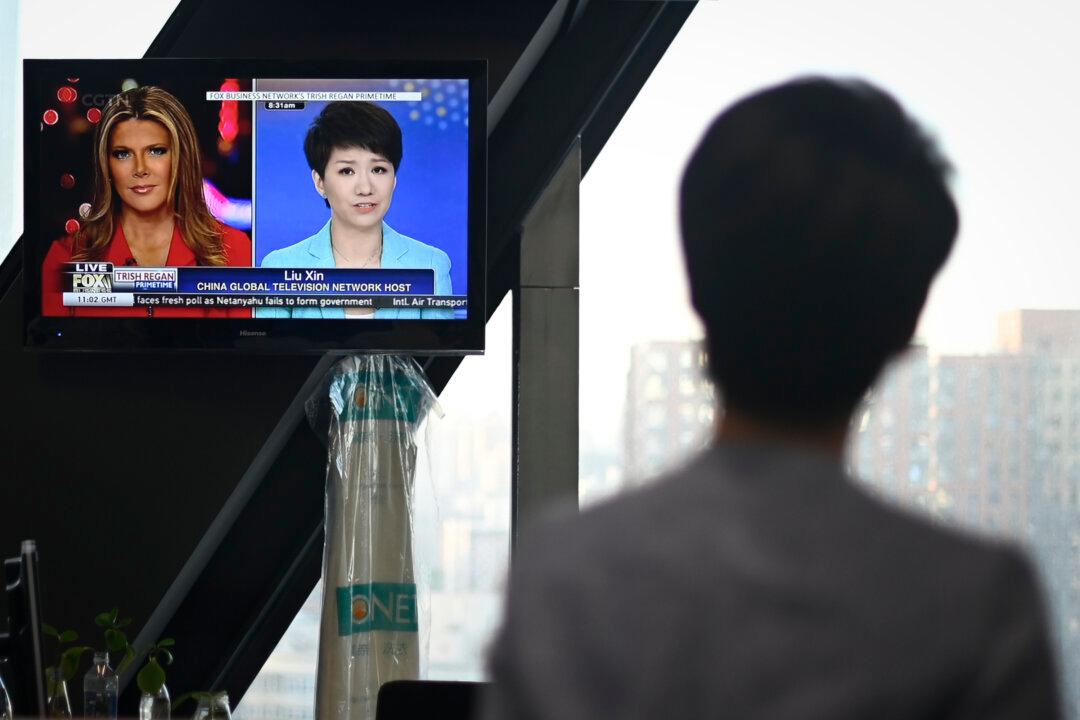After a not-so-contentious debate about the U.S.-China trade war with a Chinese state broadcaster, Fox Business Network host Trish Regan is offering up the chance for a second round.
“I look forward to ... continue hearing all sides on China Trade (Spoiler alert to twitter universe: I’m a proponent of thoughtful, respectful discussion—and Liu Xin is too!)” Regan wrote on Twitter on June 6.





